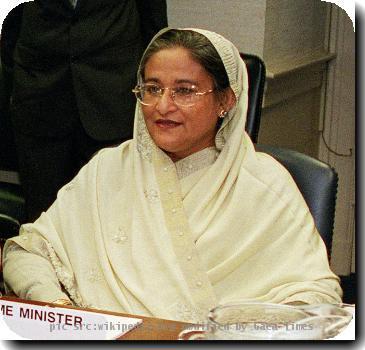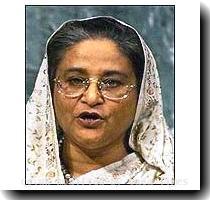Fight Indian pressure: Dhaka Jamaat leader
By IANSFriday, April 16, 2010
DHAKA - Calling India “big-brother,” right-wing Jamaat-e-Islami (JeI) chief Maulana Matiur Rahman Nizami Friday called for opposition unity to fight external “pressures” on the Sheikh Hasina government.
These “pressures” had led to the government agreeing to India using the Chittagong and Mongla ports, he told a party gathering, United News of Bangladesh (UNB) reported.
Nizami also blamed India for pressuring the government for its move to hold “war circles” trial of those who had killed unarmed civilians in the run-up to the 1971 freedom movement.
He asked why Hasina had not held such a trial during her earlier tenure (1996-2001).
Nizami and several top brass of the Jamaat are said to figure in the list of the accused.
JeI, the country’s biggest Islamist party, is ideologically opposed to India and calls it “enemy number one”. It had opposed the independence of Bangladesh.
Banned in the years following the independence in 1971, it was brought back to the political mainstream by military-led government generals Ziaur Rahman and H.M. Ershad.
His call was aimed at main opposition Bangladesh Nationalist Party (BNP), led by two-term prime minister Khaleda Zia, that has distanced itself since the debacle in the December 2008 parliamentary elections, political analysts said.
BNP and Jamaat were allies and shared power during 2001-06.
Nizami criticized the International War Crimes (Tribunals) Act, 1973, under which the government is moving to hold the trial.
“The act under which the trial of war crimes will be held is the blackest law in history. The trial of the war crimes under the act will be a great blunder. So far, not a single case has been tried under the act.”
He said both the moves - to impose a ban on Islamic parties and trial of the war crimes - are targeted to remove Jamaat from the political arena, Star Online said.
Nizami alleged that the government’s “fascist tendency” indicated that it is going ahead to implement the one-party rule in the country in phases.

